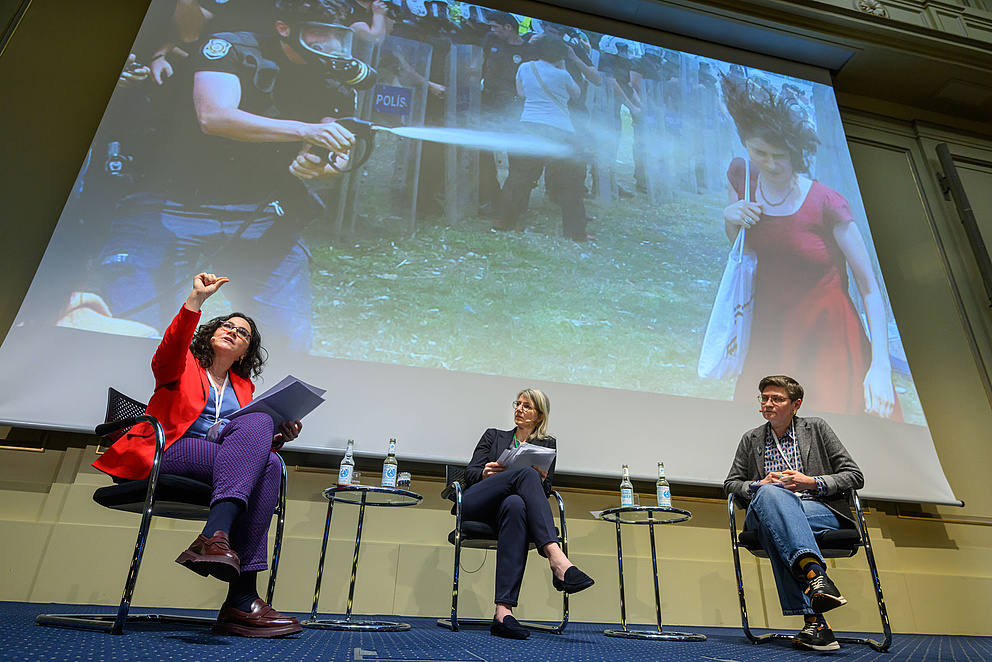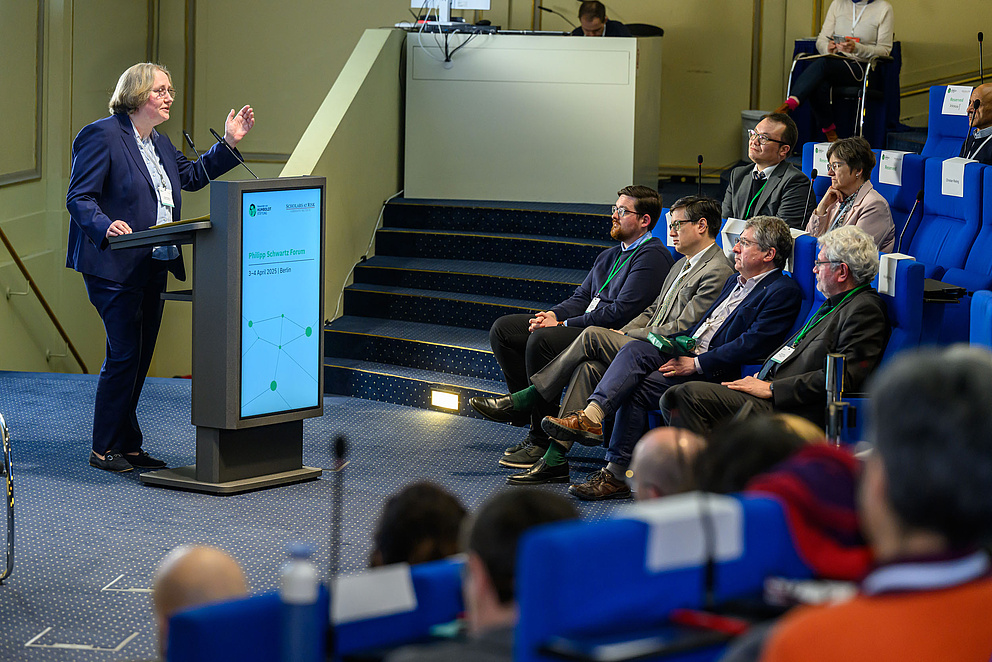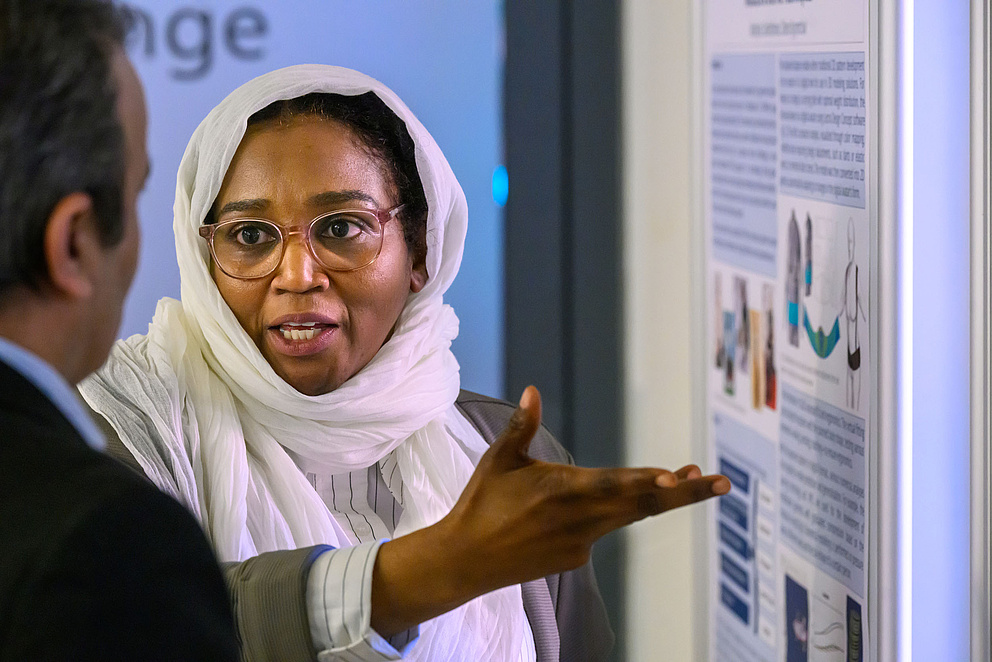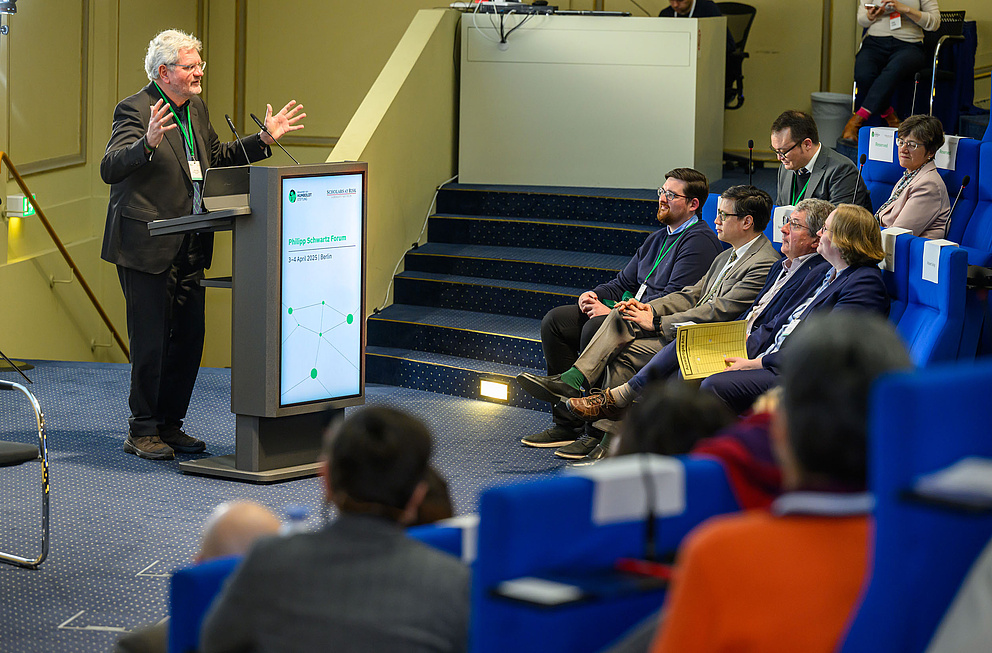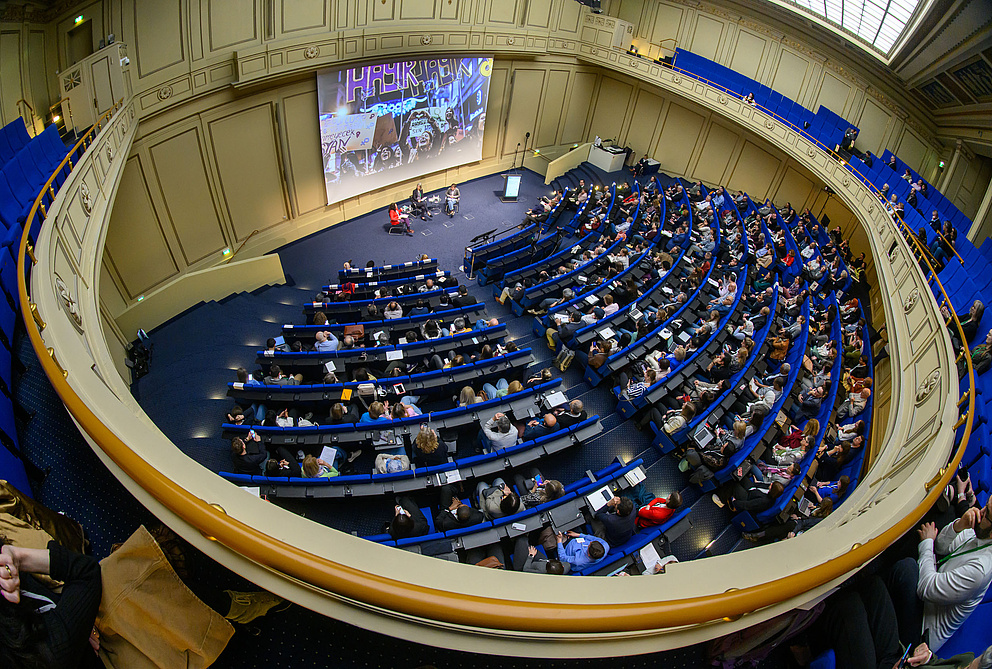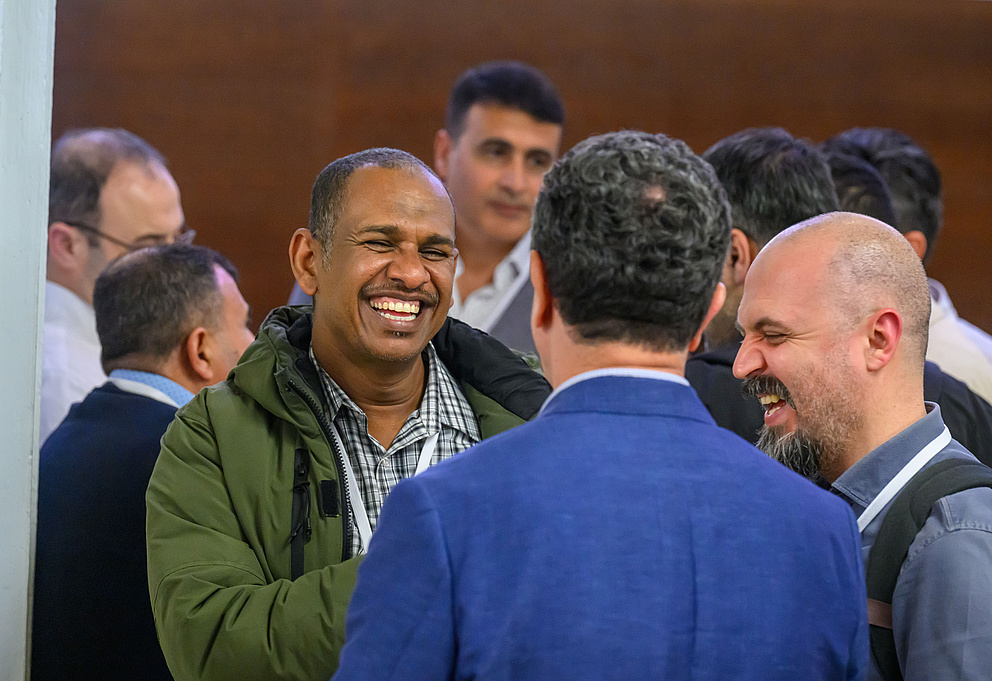Jump to the content
- {{#headlines}}
- {{title}} {{/headlines}}

Contact
Press, Communications and Marketing
Tel.: +49 228 833-144
Fax: +49 228 833-441
presse[at]avh.de
The Humboldt Foundation hosted the networking event in Berlin to bring together researchers at risk and all those supporting them, whether on the local, national or international level. The Foundation’s president, Robert Schlögl, opened the forum, addressing the participating researchers who had fled their countries:
“Your resilience and your dedication remind us why supporting at risk researchers is not only a humanitarian imperative but also an investment in the future of global knowledge.” Schlögl stressed the important role that displaced researchers play, not only because they make vital contributions to their respective field of research: “You will play a critical role in reestablishing a democratic and economically prospering society.”
Christina Gehlsen, Head of the International Science Policy Division, Federal Foreign Office, noted, “We know that the need for help is even greater.” Academic freedom is increasingly under threat. “We now see challenges even in established democracies like the US. Academic freedom is at the heart of a free democratic society”, Gehlsen said.
Feminist perspectives
On the first day of the forum the researchers Nil Mutluer, Philipp Schwartz alumna (Leipzig University), and Olga Shparaga, Philipp Schwartz fellow (University of Vienna/FernUniversität Hagen), discussed – from a feminist perspective – the repression of academic freedom in Belarus and Turkey. They agreed that feminism is “united plurality” – a powerful amalgam of various civil society perspectives. One must not lose hope was their conclusion. With a nod to the major involvement of feminist, pro-pluralism and pro-democracy resistance movements, both researchers declared: “Courage is contagious.”
Career paths for researchers at risk
“Step out of the comfort zone, be open about new options”, said Pınar Şenoğuz, Philipp Schwartz alumna from TH Köln – University of Applied Sciences, who was part of the panel discussing “Rebuilding Successful Career Paths”. Researchers from Turkey, Ukraine and Venezuela provided insights into career opportunities in science and raised the question: How can researchers continue their careers in Germany after having them involuntarily interrupted by violence and persecution in their home country? This forced scientific mobility is different than a researcher’s planned, career-furthering mobility.
Rebuilding the Syrian science system
Another focus of the forum was the current academic/research situation in Syria. The participating Syrian researchers underscored the potential offered by Syria’s academic system, noting that it would not have to be rebuilt from scratch. But it will require more platforms – like the Philipp Schwartz Forum – where the most important topics can be discussed and plans for the next few years can be forged, they added. Young researchers abroad – some of whom have already returned to Syria – could and want to contribute to this. The Syrian government must bring democracy to life, and Germany could help build bridges, they said.
The Philipp Schwartz Initiative and MSCA4Ukraine
Anywhere the space for academic and scientific freedom, civil society and democracy shrinks, researchers are among the first to come under pressure. Researchers and scholars who are subject to significant personal threat in their country of origin can continue their work in Germany with the help of a fellowship from the Humboldt Foundation’s Philipp Schwartz Initiative. Threatened researchers from Ukraine are being supported through the MSCA4Ukraine programme in Germany and other European countries.

